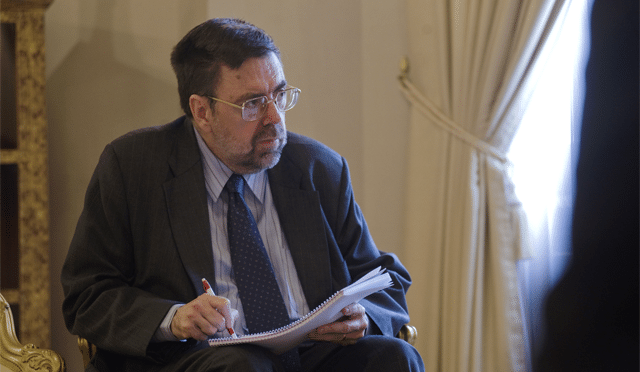Christians: The urgent case for Jesus in our World by Greg Sheridan (Allen and Unwin, 2021)

By Ian Palmer
7 September 2021
What an amazing, compelling and exciting read. Dramatically, Christians places Jesus Christ in his historical 1st Century context and shows how his small group of companions, transformed by his love, forgiveness, healing and hope, changed the world as they lived and died for him.
Greg Sheridan makes the person of Jesus and his closest followers easily accessible and understood. He sets out the historical evidence for Jesus and places his followers in their historical context. Through his writing they live in a very human way. Because Sheridan’s mind readily turns to examples and illustrations, he gives profound insights into these people. It doesn’t matter if Sheridan is writing about Mary, Paul or Jesus, or the beloved disciple John; each one shines from these pages with a vibrant light – the light of angels, which is the subject of another chapter. This book is worth reading, and in his erudite but easy-going journalistic style Greg Sheridan writes with passion and conviction.
Greg Sheridan is the Foreign Editor of The Australian. After the publication of God is Good for You (2018), he was challenged to write about the extraordinary, complex, living person of Jesus who changed all of history. He writes with great accomplishment. He is well read, but the scholarship is not laboured. He puts different points of view, but tells us what he thinks. This is a personal book, and is his testimony to the person he has fallen in love with: Jesus Christ.
And that’s only the first half!
The second half of the book tells stories of people who are making a difference in our world – especially Australia.
The background to Christians comes at the beginning of God is Good for You, where Sheridan writes: “Human beings are formed in a culture, and a culture without God will form different human beings.” In Christians he asks: “How can Christians ‘smuggle’ (or ‘inject’) Christianity back into popular culture?” “Western culture deserves to have Jesus in it, and should really have him at its centre” (p172).
In The Weekend Australian (12-13 June 2021), Sheridan argued that there are “three wrong ways for Christians to respond to a culture going mad: Go to total war with it; Surrender to it totally, thereby offering no ethical challenge; or retreat from it into a tight ghetto.” He continued: “The right path is different: continued engagement with the culture, insistence on proclaiming the truth, but taking victory and defeat both with good cheer … Human example, creative institutions, sustained formation – these can change culture.” These form the substance of this second half of this book.
He gives examples of Australians serving their communities in distinctive ways that arise from their Christian faith. These include Melbourne’s Jenny George, who is the CEO of Converge International, an organisation that provides health and wellbeing services, especially in mental health, to more than 900 Australian organisations.
In another chapter, he focuses upon the faith of Christians in prominent positions, including former Governor-General Peter Cosgrove and Prime Minister Scott Morrison.
Sheridan has a special interest in Asian affairs. It’s not surprising that there are two chapters on Christianity in China. His depth of knowledge will provide substance to stories we read in social media. At the end of a fascinating chapter of history and present testimony from Chinese Christians, he concludes: “Christianity in China is a long, long story. Nothing is harder to predict than its future” (p300).
The chapter I found most difficult was the one about literature and film where he argues that “Popular culture has turned against God” (p171). I agree that much contemporary literature and film is “violent, nihilistic and depraved” (p172). He reviews the place of art in popular culture, which “should seek the truth and give hope and meaning”. Sheridan argues that art can convey Christian truth and permeate the culture. This reminds me of the Russian Nobel Laureate Aleksandr Solzhenitsyn who when asked why Christianity was not extinguished in the Soviet Union replied that they forgot to ban (the Christian writers) Tolstoy and Dostoyevsky.
I appreciated his comments about Tolkien but on the whole, he writes about 1950s and ’60s books and films with Christian values and misses a significant, though controversial 21st Century series: the Harry Potter books. Read carefully, these books deal with contemporary issues, including spirituality, suffering and death, and the redeeming power of sacrificial love. J.K. Rowling has spoken about how her Christian faith influences her writing.
In summary, Sheridan’s Christians should be read by all who are concerned about our culture and future. His Epilogue gives a thumbnail sketch of Peter’s devotion, weaknesses, mistakes, fear, repentance, courage, faith and perseverance. Then he encourages us by writing: “Jesus didn’t remove their difficulties and challenges, he gave them the strength and vision and purpose” (p354). The final note is one of hope. “Christ is risen.”
Bishop Ian Palmer is the former Bishop of Bathurst, now living in Victoria.







